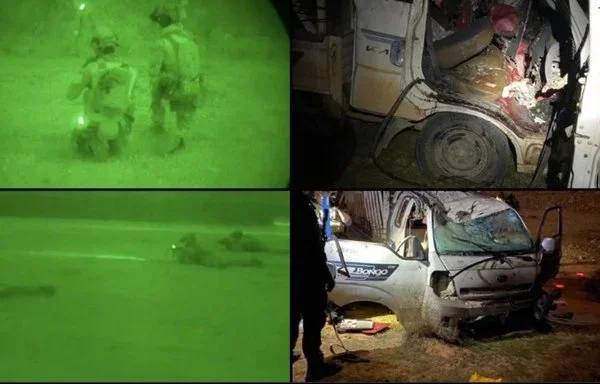Security
Confusion, disarray among ISIS rank-and-file following top deputy's death
US and Iraqi forces gathered DNA evidence confirming the identity of Abdallah Makki Muslih al-Rifai, but many ISIS followers are in denial.

By Al-Fassel |
After the March 13 airstrike that killed "Islamic State of Iraq and Syria" (ISIS) top deputy Abdallah Makki Muslih al-Rifai (aka "Abu Khadijah") in Iraq's Anbar province, US and Iraqi forces moved to the strike site and found his body.
Al-Rifai and another ISIS operative killed alongside him were both "wearing unexploded 'suicide vests' and had multiple weapons," US Central Command (CENTCOM) said in a March 14 statement.
"CENTCOM and Iraqi forces were able to identify Abu Khadijah through a DNA match from DNA collected on a previous raid where Abu Khadijah narrowly escaped," they said.
Yet many ISIS supporters are in denial, with some taking to ISIS-affiliated online forums to air their doubts and confusion, according to a March 17 report by the Middle East Media Research Institute (MEMRI) Cyber & Jihad Lab.
Analysts who spoke with Al-Fassel said this unusual public display of doubt has sparked intense arguments between different factions within the group, which is in turn a sign of the group's leadership crisis.
The death of al-Rifai may prompt ISIS to transfer its decision-making out of Iraq and Syria, according to MEMRI -- a once unthinkable situation for the group.
'A knockout blow'
"ISIS is going through its most difficult days," military expert Wael Abdul Muttalib told Al-Fassel, noting the "successive blows being dealt to its remnant elements in Iraq and Syria, as well as its supporters around the world."
"Abu Khadijah's death is considered a knockout blow that will undoubtedly lead to destabilizing what remains of the leadership structure, which is already suffering from significant vacancies in its ranks," he said.
The joint efforts of international coalition and regional forces are "preventing any attempt by the group to exploit fragile security situations in Syrian areas or regroup its remaining elements," he added.
ISIS has lost its greatest asset, which is influential leaders who once drove global recruitment efforts and inspired unwavering loyalty among followers, security expert Maj. Gen. Abdul Karim Ahmed told Al-Fassel.
He noted that al-Rifai only rose to become ISIS's top deputy because of a leadership void caused by the death, in rapid succession, of four of the group's previous leaders and multiple top-tier operatives.
The group's leadership challenges have frozen decision-making at all levels, analysts said, with field commanders now hesitating to execute operations and recruitment networks buckling.
With its command structure in disarray, mounting internal discord and waning supporter confidence, ISIS is losing carefully maintained façade of invincibility.
-- Samah Abdel Fattah contributed to this report from Cairo.
I love you
Abu Riyal
Thank you, thank you, thank you
Thank you thank you thank you thank you may Allah reward you well may Allah reward you well. May Allah bless you both, our brave heroes who sacrificed their lives for the sake of the homeland
Ultimately, only the truth stands